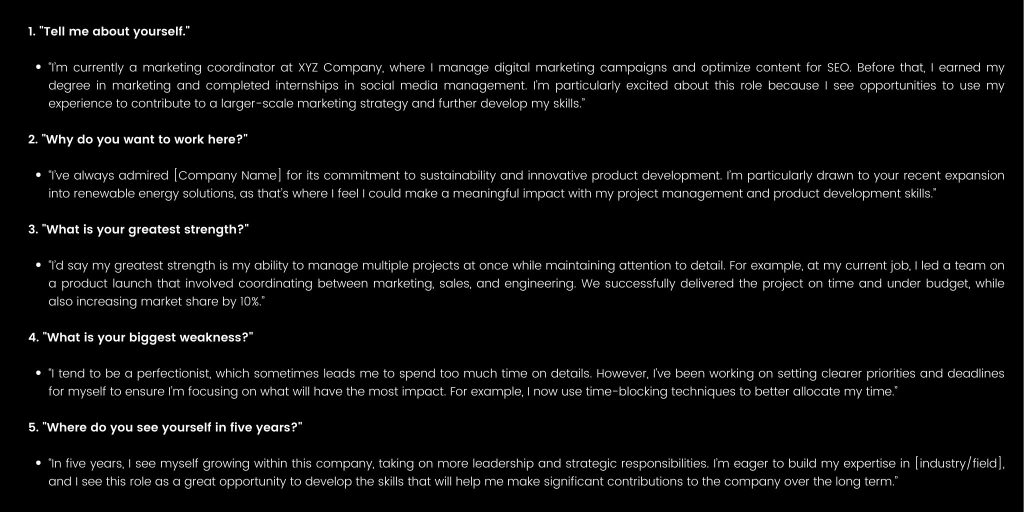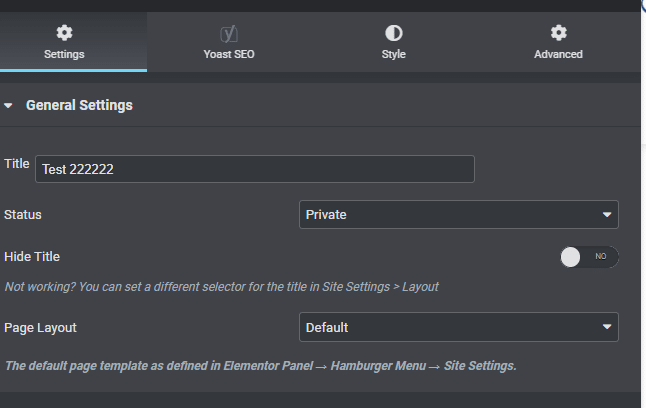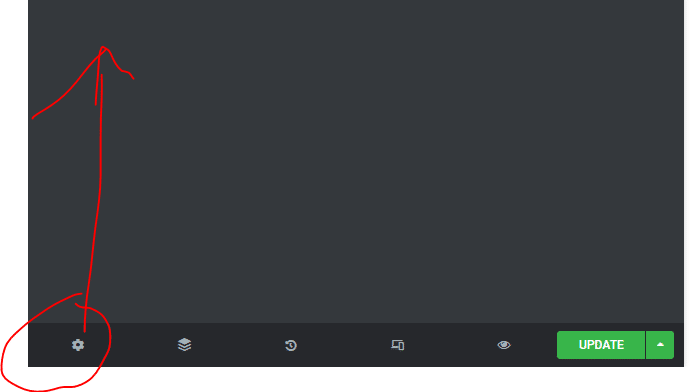
For many students, interviews can be both exciting and nerve-wracking. They can send shivers up and down your spine, whether you’re interviewing for college, applying for a scholarship, or starting your career after graduation. Knowing how to be confident in an interview is a skill set that can help shape your work experience.
But as a student, what does it take to build your confidence? How do you rise above the interview challenge of public speaking? This blog post shares some top interview strategies with you. As a student, learn how to build your confidence, prepare for an interview, and ace it remarkably.
Building Confidence as a Student
Building confidence doesn’t happen overnight. It takes years of actually knowing yourself to develop and acquire it. And when you have it, being confident requires self-assurance and consistency.
Here’s the catch: The average applicant gets one request for an interview for every six job applications sent. So, how do you build the confidence to nail this interview? If you want to become self-assured in interviews, begin as early as possible. Don’t wait till you’re scheduled for an interview at school or transitioning from college to work. Start building your confidence skills in the workplace as a student—here’s how:
1.) Acquire relevant knowledge
Confidence comes from knowledge. You’ll be more confident when you have a high level of expertise, skills, and experience on a particular subject. So, while still a student, acquire the necessary knowledge you need to succeed.
Take it from Chris Aubeeluck, Head of Sales and Marketing at Osbornes Law. He believes that knowledge acquisition is key to becoming a subject matter expert (SME). “It gives you the confidence to talk about certain topics or issues you’re well-versed in—even during critical interviews.”
Aubeeluck recommends taking studies seriously to build the self-assuredness you need in your educational endeavors and career paths. He suggests the following:
- Attend your classes. Your mentors are ready to impart the knowledge you need to know in the job market. But more than anything else, soak up as much education as you can through active listening.
- Study your lessons. Doing so allows you to reinforce what you’ve already learned in school. So, take the time to study beyond the four walls of your classroom.
- Join training programs. What better way to boost your level of knowledge than to attend internships, seminars, and workshops? They go beyond theories and expose yourself to real-life applications.
2.) Enhance your soft skills
Jarret Austin, Owner of Bankruptcy Canada, says, “Confidence makes up some of the essential soft skills. Think of the ability to speak well, connect with people, and solve problems. These acquired and developed skills make you more confident in any interviews.”
In fact, soft skills are much sought-after in the workplace. Per business leaders, the top skills are strategic or critical thinking (57%), problem-solving and decision-making (49%), flexibility and adaptability (43%), and oral or written communication (46%).
To build your confidence at school for future interviews with a potential employer, focus on the following soft skills:
- Communication: It’s being able to express yourself clearly and engage with others effectively.
- Interpersonal: It requires emotional quotient (EQ) to manage emotions and relate well with others.
- Critical thinking: It’s the ability to think critically to be able to solve problems efficiently and effectively.

3.) Develop some hard skills
Confidence doesn’t only stem from your developed soft skills; it also comes from your acquired hard skills. So, learn as much in school to excel in your chosen profession after graduation.
Reyansh Mestry, Head of Marketing at TopSource Worldwide, recommends honing hard skills while still a student. “Earning a high level of expertise in your field will prepare you for the real world. It will give you the confidence to pass any interviews and exams and eventually succeed at work.”
Mestry suggests developing and acquiring the following:
- Specialized knowledge: What course have you taken in college? What field of interest have you pursued? Whether accounting, engineering, social media, or communication, learn the basics, absorb the theories, and have the fundamentals in place.
- Technical skills: What specialized skills must you develop to graduate, pass the board exam, and earn the license? For example, you shouldn’t only be good at math in accounting. You should also be adept at using spreadsheets and leveraging software automation.
Preparing for an Interview
Interviews can be quite daunting, as you don’t know what to expect. However, there are certain aspects you can definitely master beforehand. After all, preparation is almost always the key to success, especially when it comes to interviews. So, whether you’re applying for a scholarship or looking for a job, prepare yourself for the interview’s nitty-gritty. Here’s how:
1.) Start with ample research
Whether you’re applying for a scholarship or a job, perform due diligence. Ample research is key to boosting your confidence for any interviews!
Learn from Roman Zrazhevskiy, Founder and CEO at MIRA Safety. He has conducted several final interviews with aspiring candidates. “Some of the most confident applicants are those who’ve done their homework. It’s like they’ve donned their PPEs, ready to battle in the interviews—they know what to say and why they are there!” That said, here’s what to research for your interview:
- School/scholarship: If you’re getting an interview for your college program, learn as much as you can about the department, the professors’ fields of study, and news stories about the department. If you have an interview for a scholarship, do online research about the agency or sponsor. Learn more about past winners of the scholarship program and the requirements needed.
- Job: If you have an interview, know the skills needed and the job description by heart. What areas must you be proficient in to be considered for the position? Thoroughly research their website to familiarize yourself with their company culture. Track down news stories, cite community efforts, and pore through employee reviews of the company.
- Panel of interviewers: Whether applying for a scholarship or a job, get to know the people conducting the interview. It won’t hurt to check their socials, such as their LinkedIn profiles, which will give you some insight into their qualifications and professional credentials. That way, you’ll know how to engage with them.
2.) Prepare for possible questions
Sabas Lin, CTO at Knowee, says, “Interviews can be really tough, especially if you’ve got questions you haven’t encountered at all. However, you could lessen the nerves if you’ve studied enough and prepared for all possible questions. That will boost your confidence for your upcoming interview.”
The good news? While recruiters brainstorm for the best interview questions to ask, you can also prepare for them. All it takes is to ask AI to list common questions, including their best possible answers:

- Personal questions: Interviewers want to get to know you, so expect a handful of personal inquiries. Be prepared for: Tell me something about yourself that cannot be found in the skill section of your resume.
- Relevant questions: These inquiries are related to what you’re being interviewed for. For example, interviewers will ask about your educational background or academic achievements if you’re applying for a job.
- Out-of-this-world questions: These questions will catch you off guard, but they’ll test your analytical skills or psychological abilities. Take this, for instance: How can you explain the color ‘red’ to a blind person?
3.) Set mock interviews in place
Sure, preparation is key to a successful interview. However, preparing for all possible questions might not be enough. It’s helpful to have a question-and-answer (Q&A) session of some sort—mock interviews are key!
Jeffrey Zhou, CEO and Founder of Fig Loans, suggests conducting mock interviews beforehand. “The old saying rings true to this day—practice makes perfect. If you want to boost your confidence for an upcoming interview, have Q&A rounds with your mentors or peers. By constantly doing so, you’ll get the hang of it!” Zhou recommends the mock interviews with the following:
- Peers: Mock interviews with your friends or colleagues posing as a team member or project manager can be informal. Not only will they prepare you for the actual interview, but they will also help boost your confidence. So, if you’re all applying for a job, have Q&A sessions with your peers first.
- Mentors: Mock interviews with mentors can be formal. Training centers employ reputable mentors and offer these highly effective sessions. These trainers will enhance your confidence and teach you how to nail any interview.

Acing the Interview with Confidence
There’s a line drawn between the preparation and the actual interview. No matter how much you’ve prepared, your interviews might go a bit differently than you had expected. However, there are tips and tricks to overcome the interview challenge—and yes, nail it! Whether applying for scholarships or searching for jobs, do what it takes to ace the interview confidently. Here’s how:
1.) Spruce up your verbal communication
Effective communication exudes confidence. It’s almost always the key to success—interviews included. No matter how knowledgeable or skillful you are, you might not impress the interviewers if you can’t express your thoughts and emotions.
Gary Hemming, Owner and Finance Director at ABC Finance, recommends honing verbal communication skills for successful interviews. “It’s the ability to convey your message to your interviewers as clearly and effectively as possible. However, there’s more to it than what you might think. It’s instantly connecting with people and seamlessly engaging with them.”
To show confidence and ace your interview, consider the following:
- Keep it short and simple. Clear communication helps others follow your points easily, avoiding confusion or misunderstanding. Remember, KISS!
- Modulate your voice. Vary your pitch and tone to sound more engaging and confident while keeping it natural. A modulated voice resonates well with interviewers.
- Use a friendly, professional tone. Balancing warmth with professionalism fosters trust and creates a positive impression in any interaction. Your tone should soothe the interviewers’ ears, not shoo them away.
2.) Focus on the content or messaging
When it comes to interviews, the content still matters the most. Sure, the interviewers might be convinced by how you express your ideas or deliver your thoughts. However, they will ultimately evaluate what you have to say—your message! Morgan Taylor, Co-Founder of Jolly SEO, believes that content is king in the digital world. He also claims that this rule applies to interviews.
Taylor explains, “I’ve had my fair share of interviews through podcasts. But ultimately, the most important thing in any discourse is how your message resonates with people. Did you share anything valuable with others? Did they learn anything from you? Were they convinced?”
Taylor suggests the following during an actual interview:
- Directly answer the questions. Going around the bush is never good, especially in a job interview. Understand the question critically and give a straightforward answer. Be sure to hit the bullseye!
- Provide examples or situations. Sure, you might give a direct answer to an interview question. However, a generic answer is a big no-no. What better way to offer a sensible answer than to expound with actual scenarios and real-life examples?
- Clarify or ask relevant questions. You don’t always understand every question asked, so it’s best to ask for clarification. Likewise, doing so helps promote a two-way interaction between you and the interviewers.
3.) Observe your non-verbal language
It’s crucial to pay attention to your non-verbal cues during an interview. While your oral communication and content messaging matter, your delivery counts. How you dress, sit on the chair, or look at the interviewers often speaks louder than words.
In fact, Gitnux claims that 93% of communication is non-verbal. So, that begs the question: How can you improve your non-verbal language to demonstrate real confidence? That said, observe your smile, eye contact, posture, and all other body language. Here’s how to look professional and stay confident during an interview:
- Wear a genuine smile. A natural smile shows you’re approachable and positive. Smile, and the world will smile back at you!
- Maintain eye contact. It shows confidence and helps you engage with the interviewers. Have eye-to-eye contact with them.
- Sit properly. Good posture demonstrates professionalism and attentiveness. Warm your seat with poise and grace.
- Use proper gestures. Keep hand movements natural, avoiding excessive or distracting motions. Frantic hand gestures will detract from your dialogue, making it difficult for interviewers to concentrate on your words.
- Dress professionally. Choose attire appropriate to make a strong first impression. Remember, dress for the occasion.
- Show off your credentials. If you’re interviewing remotely, make sure you have your college diploma frame in view. It’s a non-verbal reminder to the hiring manager that you have the qualifications and expertise for the job.
Capping the Interview with Confidence
Interviews can be overwhelming and intimidating. But as a student, learn how to build your confidence, whether you’re being interviewed for college, a scholarship, or a job. That said, consider some of the top interview strategies recommended above. Heed our advice, whether you’re yet to build your confidence, prepare for an interview, or undergo the actual interview itself.
Sure, you might come all prepared and ready. However, how confident you are will resonate with the interviewers and win their hearts. In the end, cap the interview with real confidence!









